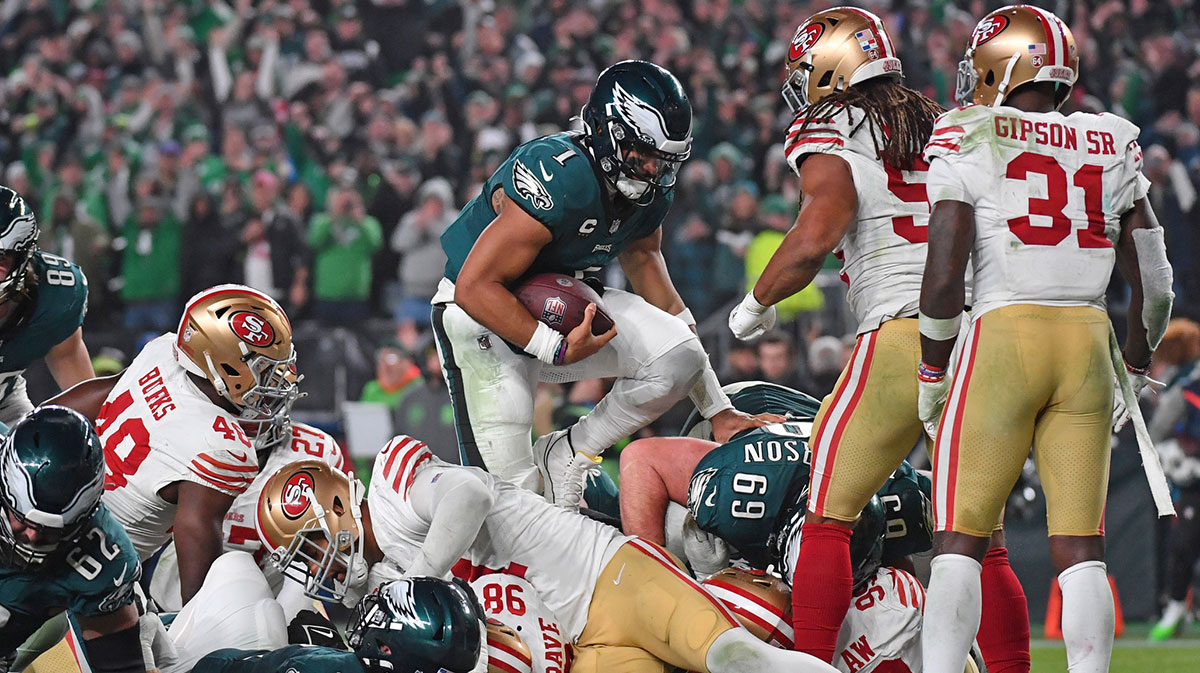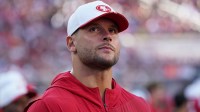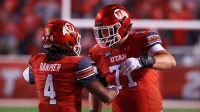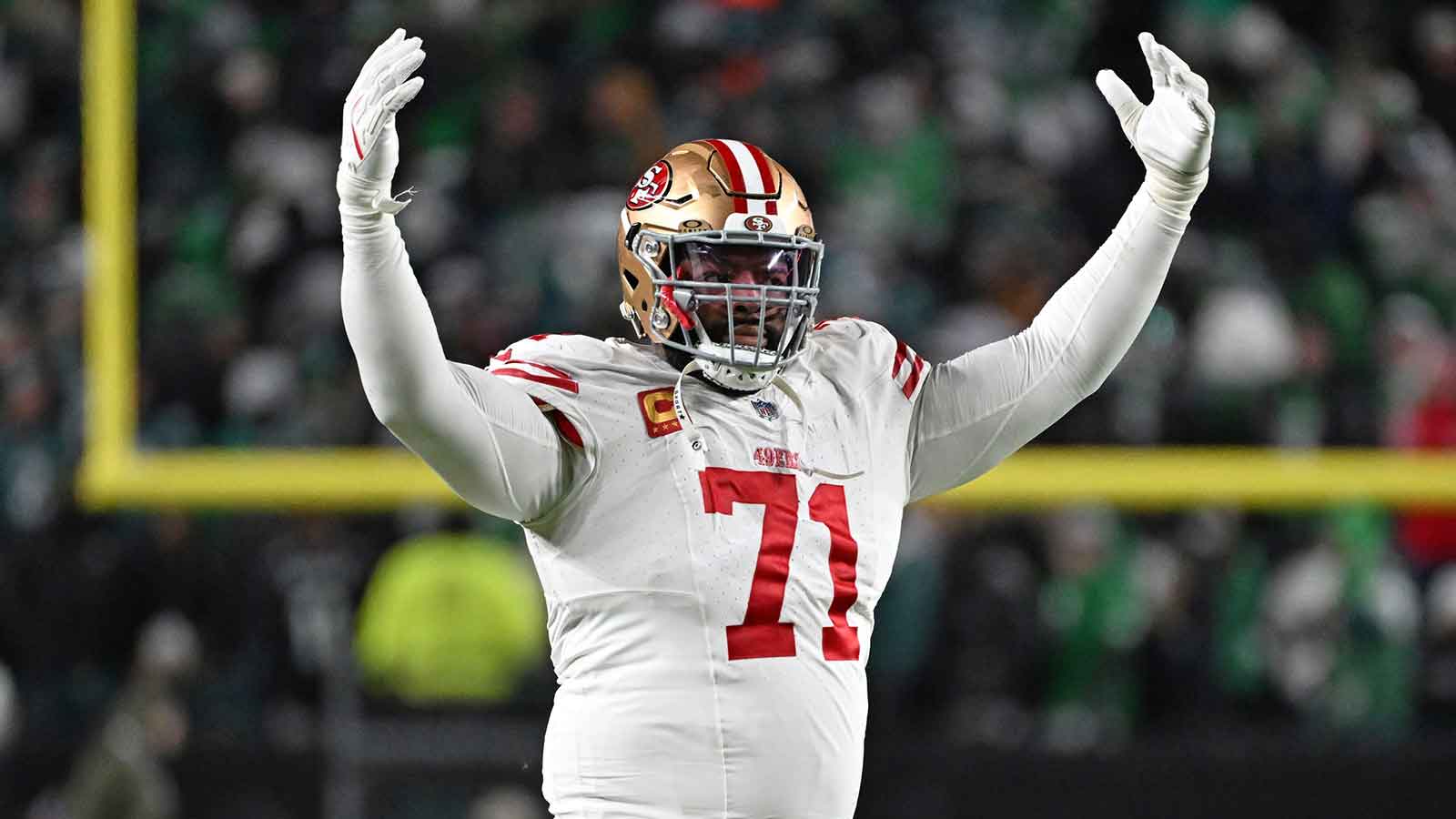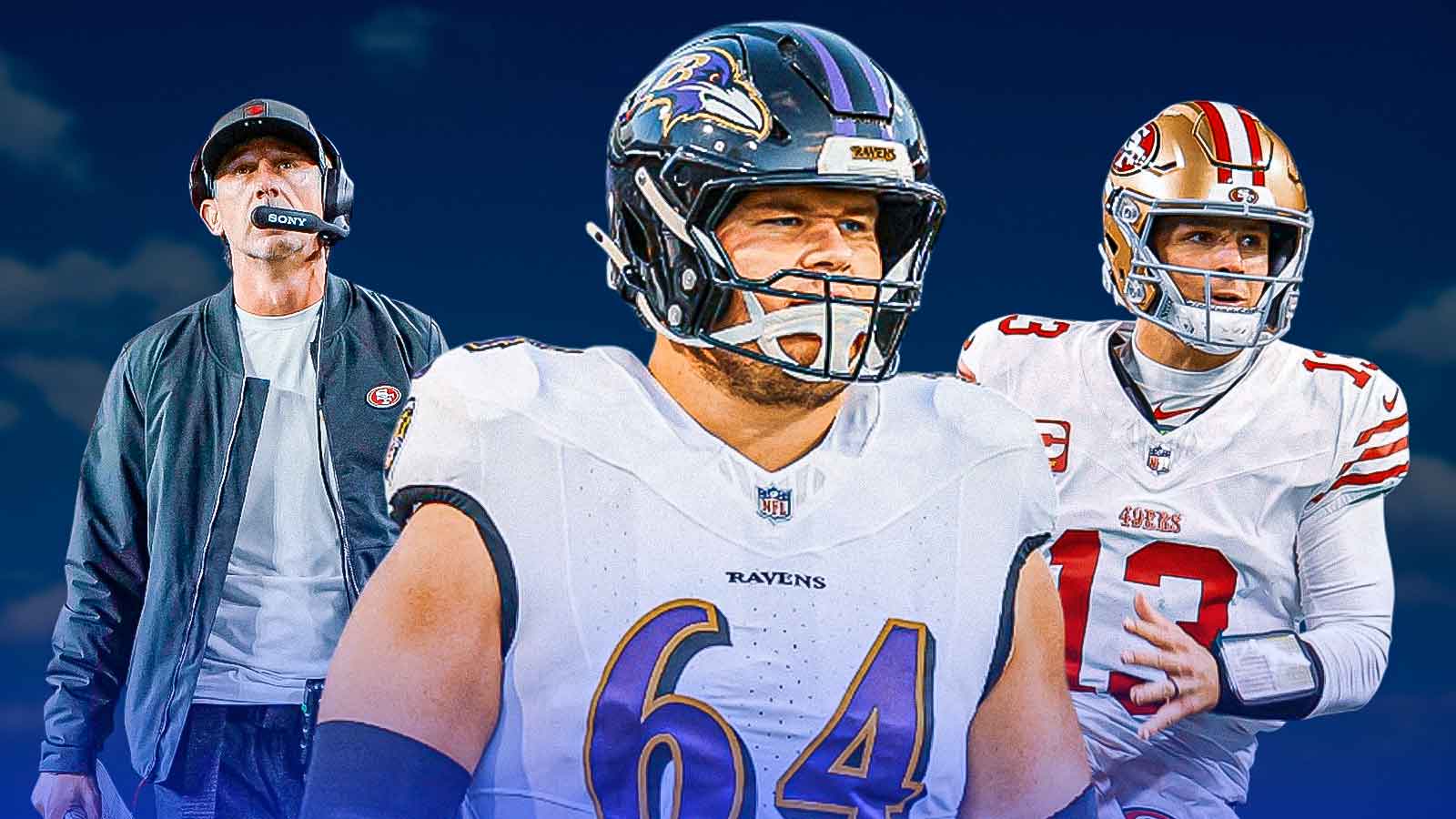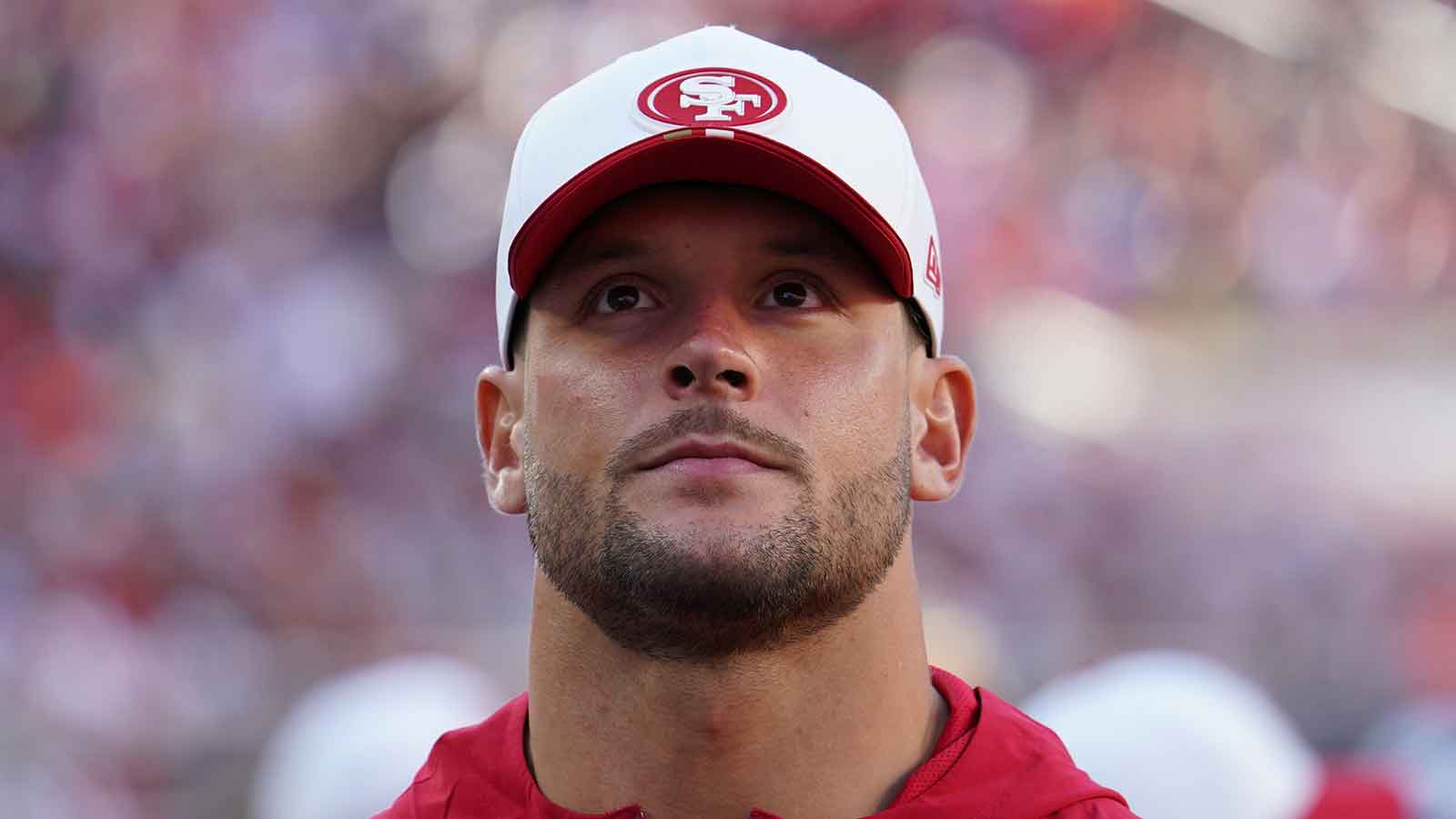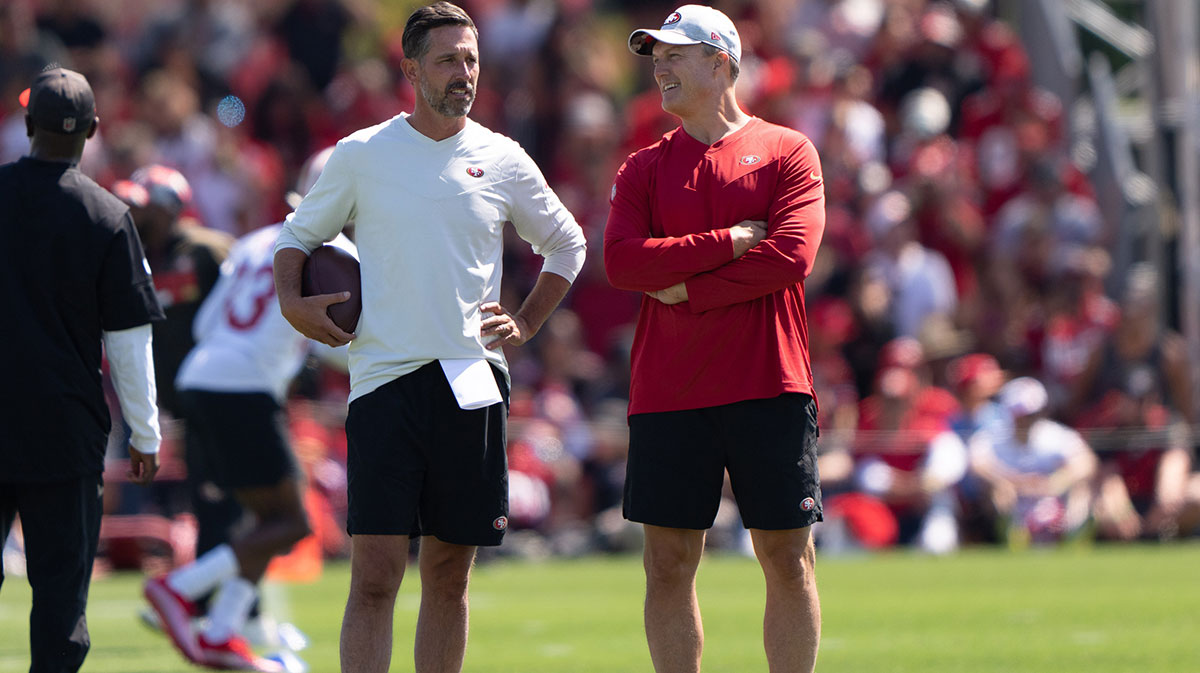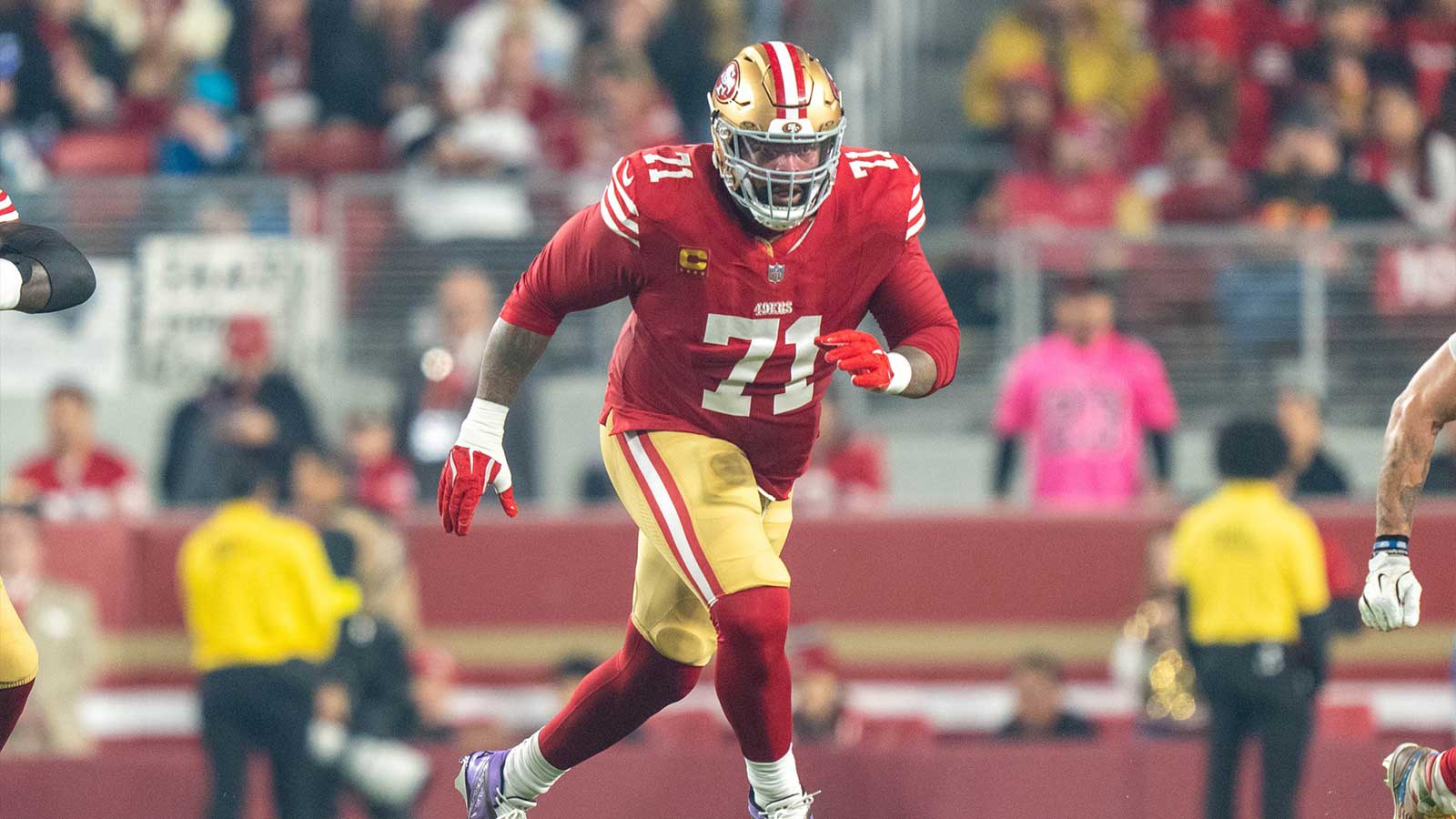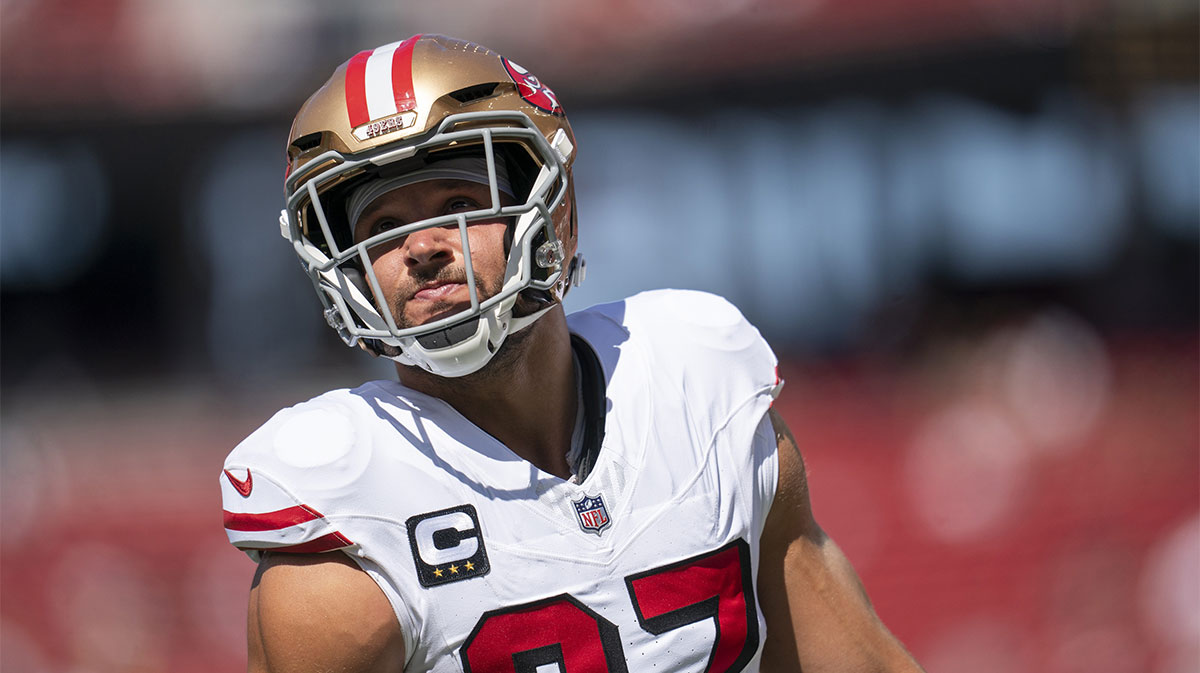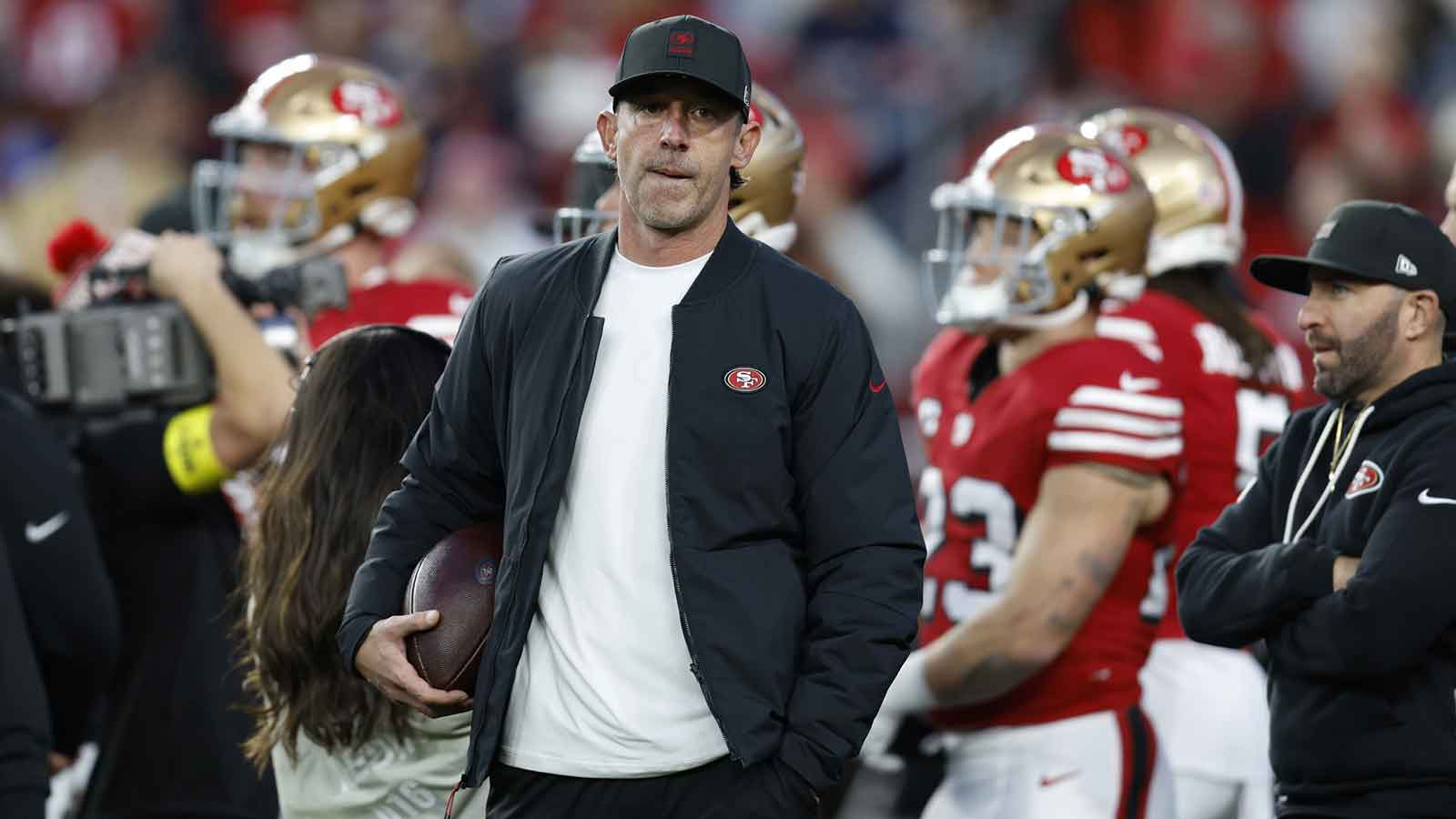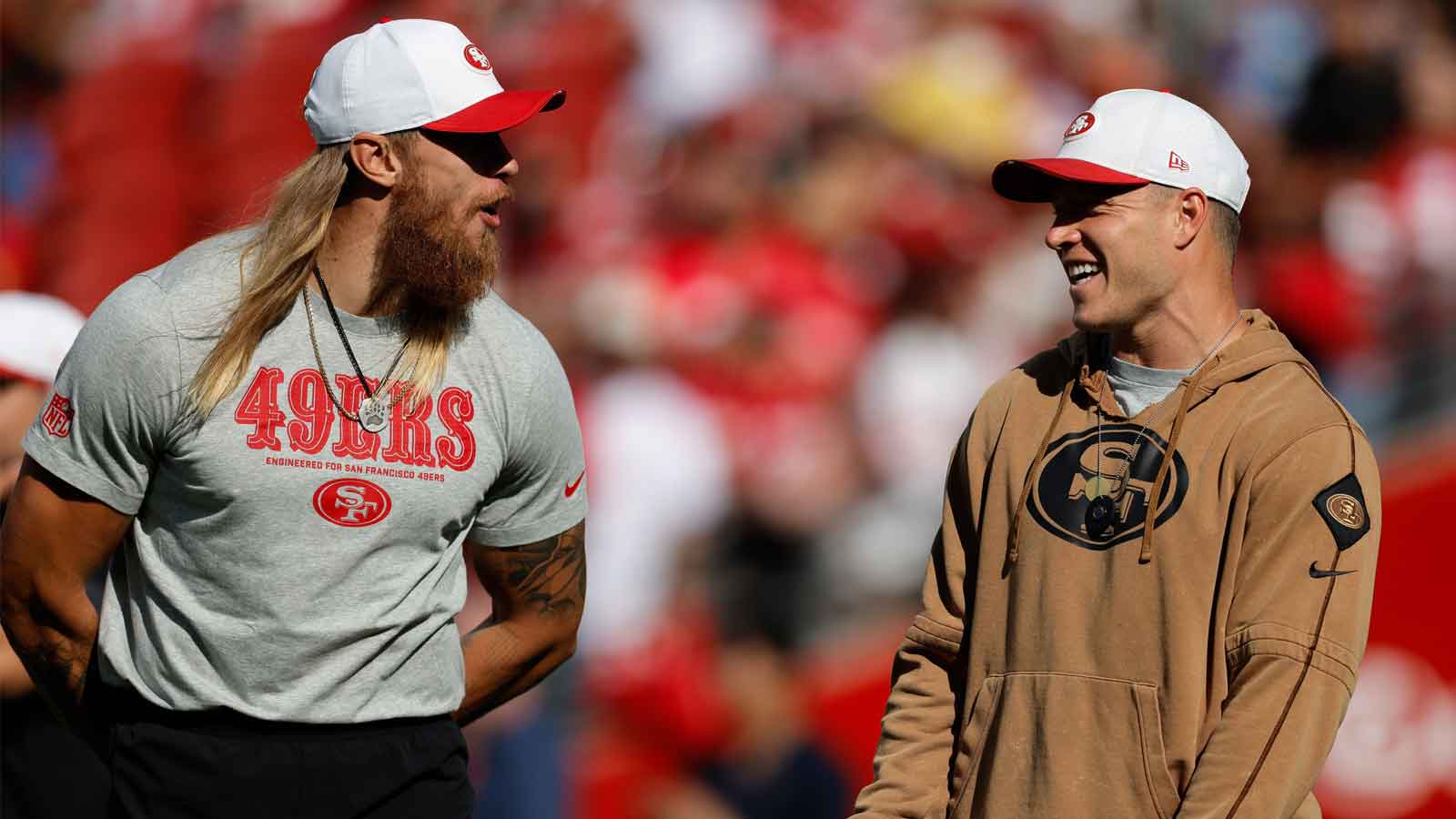The ‘Tush Push' conversation has been contentious, to say the least, and amid a push to ban the polarizing play, the San Francisco 49ers' owner had a pretty direct message for the Philadelphia Eagles' owner.
During a nearly one-hour speech in which Eagles owner Jeffrey Lurie attempted to persuade his fellow NFL owners not to ban the Tush Push, which Philadelphia popularized and has used to great effect, 49ers owner Jed York spoke up and asked Lurie “how much more s–t” the Eagles owner needed to say, per ESPN's Seth Wickersham.
Shortly thereafter, NFL commissioner Roger Goodell adjourned the meeting and began the “privileged session,” in which the owners narrowly voted not to keep the Tush Push in the NFL. According to reports, 10 teams, including the Eagles, voted not to ban the quarterback sneak that critics have claimed puts players at greater risk of injury and is not a ‘football play.' Among the teams that reportedly voted along with Philadelphia include the New England Patriots, Detroit Lions, Baltimore Ravens, and New York Jets.
Opponents of the Tush Push did not garner enough support to ban it this time around, and it is possible former Eagles center Jason Kelce may have played a factor in that. Kelce appeared at the owners' meeting today to throw his support behind the play he found himself at the center of for a few seasons before retiring last year.
According to ESPN, Kelce told the owners, some of whom believe the play is more dangerous than a given football play, that the Tush Push is not particularly dangerous and that it was not the reason he retired after 13 seasons in the NFL. Kelce also reportedly told the room that he would return to the NFL if the Eagles could run the play 60 times a game.
Whether it is or is not more dangerous, or whether teams like it or not, the Tush Push is here to stay for now. The Eagles have proven to be highly effective while using it, but considering all 32 teams are now aware the play is fair game this season, Pittsburgh Steelers president Art Rooney II told ESPN that more teams may practice it in the offseason.

